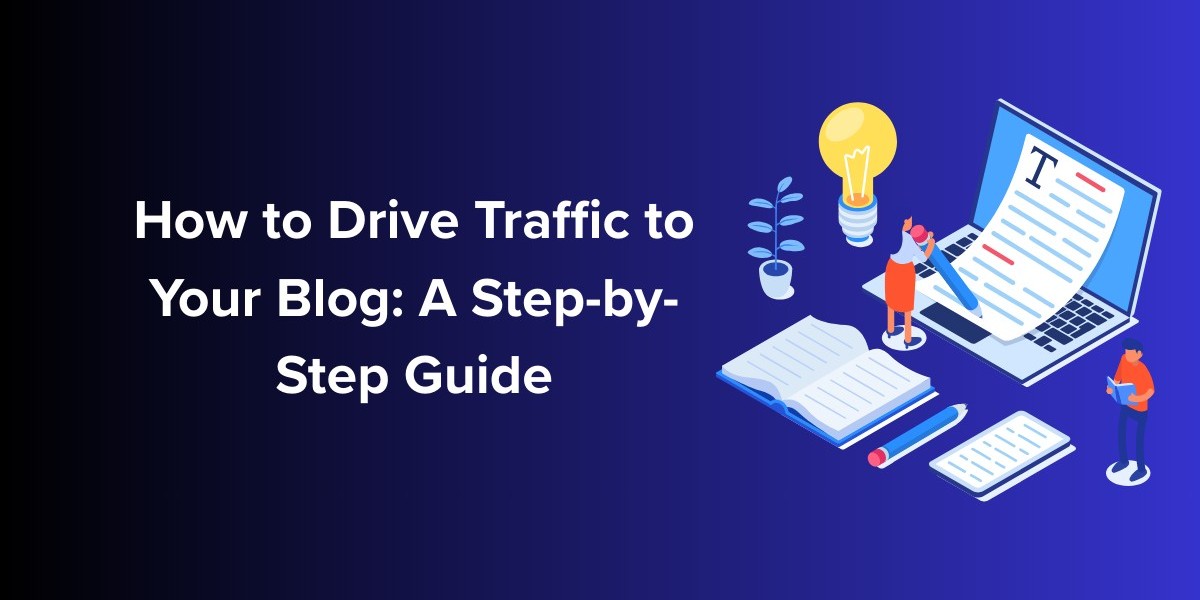So you’ve launched a blog or maybe you've been posting regularly but traffic just isn’t picking up the way you hoped. In 2025, driving blog traffic is more than just writing good content. It's about smart distribution, strong SEO, and understanding what your audience actually wants.
Here’s a step-by-step guide to help you increase blog traffic in 2025, using proven strategies that work without relying on paid ads.
Step 1: Create Value-Packed, SEO-Optimized Content
Great content still wins, but in 2025, it needs to be:
Highly relevant
Focused on search intent
Easy to read
Rich in helpful insights
Use keyword research tools to find what people are searching for. Target long-tail keywords and questions your audience actually asks. Focus on topics you can rank for and solve problems with.
Structure each post with:
Clear headings (H2, H3)
Short paragraphs
Internal links to related content
A single, focused message
Step 2: Update and Repurpose Old Blog Posts
Don’t just keep creating new content. Refreshing old blog posts helps:
Improve rankings
Drive new traffic from Google
Keep your content relevant
Update stats, add better visuals, improve the formatting, and re-promote the post as if it’s new. Then, repurpose it into a video, infographic, or carousel to share across platforms.
Step 3: Share on the Right Social Media Channels
Identify which platforms your audience uses most whether it’s:
Twitter (now X) for tech/industry updates
Instagram or Pinterest for lifestyle content
LinkedIn for B2B and thought leadership
Facebook for communities and shares
Instead of just dropping a link, create engaging posts with:
A hook or problem
A snippet or insight from the blog
A strong call to action
Post multiple times with different formats (carousel, story, quote post) to maximize visibility.
Step 4: Join Niche Communities
Promote your blog in places where your audience already hangs out. This could be:
Reddit subreddits
Facebook groups
Quora threads
Slack or Discord communities
Specialized forums
Don’t spam links. Offer helpful advice first, then recommend your blog as a deeper resource.
Step 5: Build an Email List and Send Newsletters
Your blog traffic should never rely only on Google or social media. Build a direct line to your readers with email marketing.
Use lead magnets (like checklists, free guides, or exclusive content) to get signups. Then, send regular updates that:
Link back to your newest posts
Promote older content
Keep your audience engaged
This creates consistent return traffic and loyal readers.
Step 6: Improve Technical SEO
Even the best content won’t rank if your blog is slow or unoptimized. In 2025, Core Web Vitals and mobile performance are huge ranking factors.
Here’s what to fix:
Fast page load speed
Mobile-friendly layout
Secure (HTTPS) connection
Clear site structure
XML sitemap and schema markup
If you’re using a reliable hosting provider like Arzhost, you’re already ahead because performance and uptime directly impact SEO.
Step 7: Collaborate with Other Bloggers and Creators
Guest posts, podcast interviews, expert roundups, and backlink exchanges can dramatically increase your blog’s reach. Collaborations expose your content to new audiences and improve your site’s authority.
Start by:
Commenting on relevant blogs
Featuring others in your posts
Reaching out with value-driven pitches
Make it a win-win.
Step 8: Analyze, Optimize, and Repeat
Use tools like Google Analytics and Search Console to track:
Where your traffic comes from
Which content performs best
What keywords you're ranking for
Then use those insights to double down on what works and fix what doesn’t.
Final Thoughts
Driving traffic to your blog in 2025 is about consistency, clarity, and smart strategy. You don’t need to do everything at once. Start with one or two steps from this guide and build momentum.
Remember: quality content + optimized delivery + smart promotion = steady traffic growth.
With the right tools, hosting infrastructure, and commitment, your blog can stand out and grow—no matter how saturated your niche feels.







